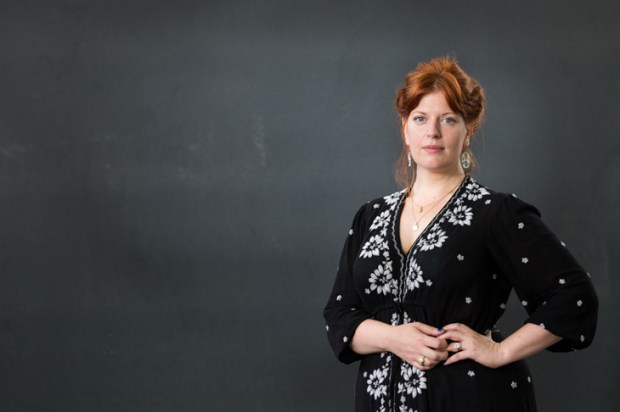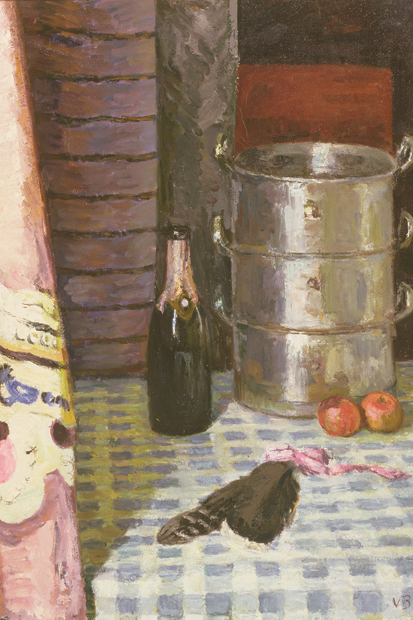One of these is by Lydia Davis, acclaimed American writer. One is not. They are whole pieces, by the way, not extracts.
This morning I went into the park I often pass on my journeys to somewhere else. I can now say that I have been into this park and not always passed it by.
Now that I have been here for a little while, I can say with confidence that I have never been here before.
One of these accounts of a dream is by Lydia Davis. One is not.
I am a college girl. I tell a younger college girl, a dancer, that the sun is very low in the sky now. Its light must be filling the caves by the sea.
I am watching a man lift up the sails of a windmill in his bare hands. The sails catch the light and appear to be spinning.
One of these observations is by Lydia Davis. One is not.
I used to be quite certain that many people made a puzzling mistake when they wrote ‘New York, New York.’ Now I know the place may be correctly called ‘New York, New York.’
She thinks, for a moment, that Alabama
is a city in Georgia: it is called Alabama, Georgia.
No, I’m not giving you the answers. You decide.
Short stories are having something of a resurgence, which I suspect means they are popular with more writers but not with more readers, so perhaps whoever called Lydia Davis ‘a writer’s writer’s writer’ had a point, and although I am not generally in favour of banning books I would ban all students on creative writing courses from ever reading her books, or parts, or even single pages of her books. Davis breaks all the rules and then makes up a few of her own and breaks those as well.
Well, of course there are no rules, but you have to know the rules there are not, and conform to them, before you are allowed to break them.
Can you see how I am struggling here?
What is a short story? This book has 283 pages of short, or short-ish or extremely short pieces, and few of them are what you would confidently recognise as ‘a short story’. So what are they? Let us turn to one of the great professors of literature, Christopher Ricks, struggling a bit, like me (that’s a comfort) to come up with a succinct description of what Davis writes:
Her writings fling their lithe arms wide to embrace many a kind. Just how to categorise them? Should we simply concur with the official title and dub them stories? Or perhaps miniatures? Anecdotes? Essays? Jokes? Parables? Fables? Texts? Aphorisms, or even apophthegms? Prayers, or perhaps wisdom literature? Or might we settle for observations?
I think that at this point Lydia Davis might fling her lithe arms wide and say ‘Whatever’.
But you haven’t put your cards on the table yet, I hear you say. Don’t cheat. Tell us what you really think. That is what the literary editor is paying you for.
Right. I think Davis a ‘writer’s writer’, which is good, but that readers who are not writers should try her, if only because I’m pretty sure she doesn’t write only for other writers, any more than the rest of us do.
Get any idea you have of what a short story is/is not/should be out of your head. Take these, er, writings, as they come, slowly. You will snort with derision sometimes, laugh at others, shake your head in bewilderment occasionally, see a sort of point here and there. You will go back to a little gem that has wormed its way into your mind and stuck there, and discover that it is indeed a little gem, which sparkles a different way each time and flashes with a brief beauty or hidden meaning:
She is bending over her child. She can’t leave her. The child is laid out in state on a table. She wants to take one more photograph of the child, probably the last. In life, the child would never sit still for a photograph. She says to herself, ‘I’m going to get the camera,’ as if saying to the child, ‘Don’t move.’
See what I mean?
Still think she is probably not for you? Let me put a proposal. Buy this book and read just one long piece called ‘The Letter to the Foundation’. If you don’t agree that it is a work of genius, a profound, beautiful, moving, many-faceted jewel of a thing, then Lydia Davis is indeed not for you, as she should not be if you are on creative writing courses. What do you mean, why? Because you would catch her, and there is only room in the world for one Lydia Davis.
Got something to add? Join the discussion and comment below.
Get 10 issues for just $10
Subscribe to The Spectator Australia today for the next 10 magazine issues, plus full online access, for just $10.
Available from the Spectator Bookshop, £13.99. Tel: 08430 600033
You might disagree with half of it, but you’ll enjoy reading all of it. Try your first month for free, then just $2 a week for the remainder of your first year.















Comments
Don't miss out
Join the conversation with other Spectator Australia readers. Subscribe to leave a comment.
SUBSCRIBEAlready a subscriber? Log in